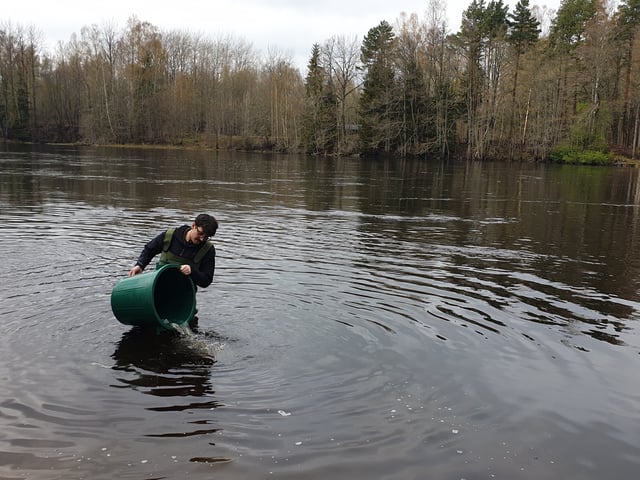Overview
- New research published in *Science* shows that clobazam, a common anti-anxiety drug, affects the migration behavior of Atlantic salmon in Sweden's River Dal.
- Clobazam exposure increased migration success and speed through hydropower dams but led to riskier behaviors, such as reduced shoaling, which may heighten predation risks.
- The study combined field experiments and lab tests, confirming that pharmaceutical pollutants accumulate in salmon and alter their brain function and social dynamics.
- Over 900 pharmaceutical compounds have been detected in global waterways, often due to inadequate wastewater treatment systems, highlighting a growing environmental issue.
- Researchers plan follow-up studies using advanced tracking tools to assess the long-term impacts of pharmaceutical pollution on fish survival and ecosystems.



